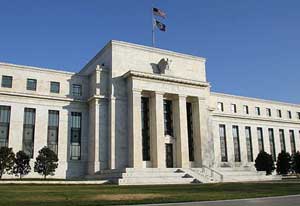Some of the world’s leading politicians and economists are coming round to the fact that money can’t buy happiness.
Even US Federal Reserve chairman Ben Bernanke believes that economic indicators may not be the best way of measuring how well off people really feel.
In a speech, he argued that although the US economy is improving, many people and businesses feel they are still unhappy and facing a tough time.
He claimed the tiny kingdom of Bhutan, high in the Himalayas, may have got it right with a Gross National Happiness Index, which covers education and time spent in leisure activities.
Prime Minister David Cameron has been the force behind a similar project in the UK, measuring wellbeing.
“Even though some key aggregate metrics, including consumer spending, disposable income, household net worth, and debt service payments, have moved in the direction of recovery, it is clear that many individuals and households continue to struggle with difficult economic and financial conditions,” said Bernanke.
The big question for Bernanke and Cameron is their motives for establishing happiness indices.
An urge to nurture the well-being of the populations of the UK and USA shows the caring, sharing side of normally hard-nosed politicians.
But are these efforts to plug in to the feelings of nations more of an attempt to deflect attention away from how bad the economies are performing in an effort to say times are tough, but everyone still has something to feel good about.
Bernanke voiced his musings about happiness to a conference discussing economic measurement.
Rather than talk about monetary policy, he was keener to talk about ‘interesting developments’ in the field of the measurement of economic well-being.
“More conventional economic measurements that bear on the quality of life include income distribution, upward mobility, job security, and buffers households have to protect against financial shocks,” he said.
“All of these indicators could be useful in measuring economic progress or setbacks as well as explaining economic decision making or projecting future economic outcomes.”
